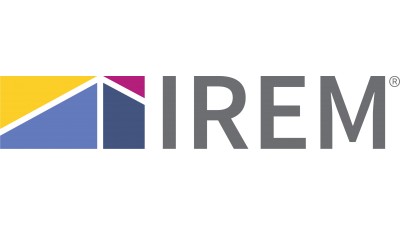How Real Estate Organizations Advocate For Tenants And Landlords Alike

Along with ensuring that everything in a commercial property is running smoothly and addressing the needs of tenants, property managers face another important challenge: staying abreast of legislative and regulatory proposals that could impact the real estate industry.
From rent control to Americans with Disabilities Act lawsuit reform, to data security, fair housing and real estate management licensing, there are several current and pending regulations that impact commercial real estate. Property managers serve as the eyes and ears of landlords and building owners on the ground, and as such, they need to be aware of these issues and confident their buildings are compliant.
IREM — Institute of Real Estate Management — along with providing education, certification and networking opportunities for property managers, routinely meets with legislators and government agencies, such as the U.S. Department of Housing and Urban Development. The organization advocates for policies that positively impact renters, property managers, building owners, investors and the entire real estate industry.
“We always have our finger on the pulse of what’s going on so we can educate our members and advocate accordingly,” said Dawn Carpenter, an IREM certified property manager and 2023 IREM secretary/treasurer. “We speak with legislators directly, we lobby, we do whatever it takes to support both property managers and tenants.”
On the advocacy section of IREM’s website, visitors can view the organization’s position on several policies, letters IREM has submitted to Congress and the White House advocating for the industry, and initiatives IREM has undertaken to support property managers. Operators themselves can visit the site to stay on top of current and pending regulations.
Along with industry-specific topics, IREM is also involved with championing broader issues that impact the general public. One example Carpenter gave was advocating for the Clean Water Act, a public health initiative with a widespread impact on the work of property managers.
“This is an example of something that is clear, in writing, that can be followed and mandated for public health, which we believe strongly in,” Carpenter said.
She added that IREM is also passionate about affordable housing issues and believes in housing for all. On its website, the organization states that IREM members “advocate for funding for the development and management of housing to ensure the future economic viability and households’ right to live in safe, accessible, and affordable housing.”
IREM is also part of a larger coalition of real estate organizations including the National Multifamily Housing Council, the National Association of Housing Cooperatives, the National Association of Realtors and several other prominent groups that work together to lobby for key policies impacting real estate. The group released a statement on the White House’s Blueprint for a Renters Bill of Rights, a plan to create a comprehensive set of federal laws protecting renters that was proposed on Jan. 25. In the statement, the coalition agrees that the U.S. is facing an affordability crisis, but expressed concerns that by focusing solely on renter protections, the Renters Bill of Rights fails to address the underlying cause of the lack of housing affordability in this country.
“We are disappointed that today’s release is solely focused on renter protections, creating potentially duplicative and onerous federal regulations that interfere with state and local laws meant to govern the housing provider and resident relationship,” the statement read.
The coalition is instead calling on President Joe Biden to prioritize his administration’s Housing Supply Action Plan and to focus on building more housing of all types and price points to increase the supply of quality housing in the U.S.
In response to the action plan, IREM is working with the NAR to create new resources for property managers that highlight ways to incorporate resident-centered property management practices in their businesses. Practices would include a range of examples that have been proven effective, such as advertising to prospective residents that Housing Choice Vouchers are accepted at their property, providing information about rental assistance and using alternative credit scores for applicants without a detailed credit history.
Looking ahead, Carpenter said she believes energy conservation will play a larger role in future legislation that property managers will need to follow. Benchmarking, energy audits and an enhanced focus on environmental, social and corporate governance have all become common in cities across the country, and there will likely be more regulations coming to reduce energy consumption and carbon emissions in the built environment.
Along with that, affordable housing and rent control continue to be at the forefront of policies that impact IREM members, Carpenter said. She recommended that in addition to visiting IREM’s website to stay informed about policy changes, property managers can go to their state and local municipality and put in regulatory bill requests to see all new real estate legislation that's being proposed or has passed.
On March 28-29, IREM will be returning to Washington, D.C., for Advocacy Impact Day, where IREM members can join to communicate vital issues affecting the real estate management profession to legislators and their staff. Participating in Advocacy Impact Day allows real estate professionals to learn about the proposals that impact real estate management and how to help shape those issues. Additionally, they will have the opportunity to build valuable relationships with legislators and speak directly to those with the power to change laws and regulations that affect real estate.
“Property managers act as extensions of landlords and property owners,” Carpenter said. “It’s our responsibility to stay on top of all new regulations to ensure we are staying compliant.”
This article was produced in collaboration between Studio B and IREM. Bisnow news staff was not involved in the production of this content.
Studio B is Bisnow’s in-house content and design studio. To learn more about how Studio B can help your team, reach out to studio@bisnow.com.

